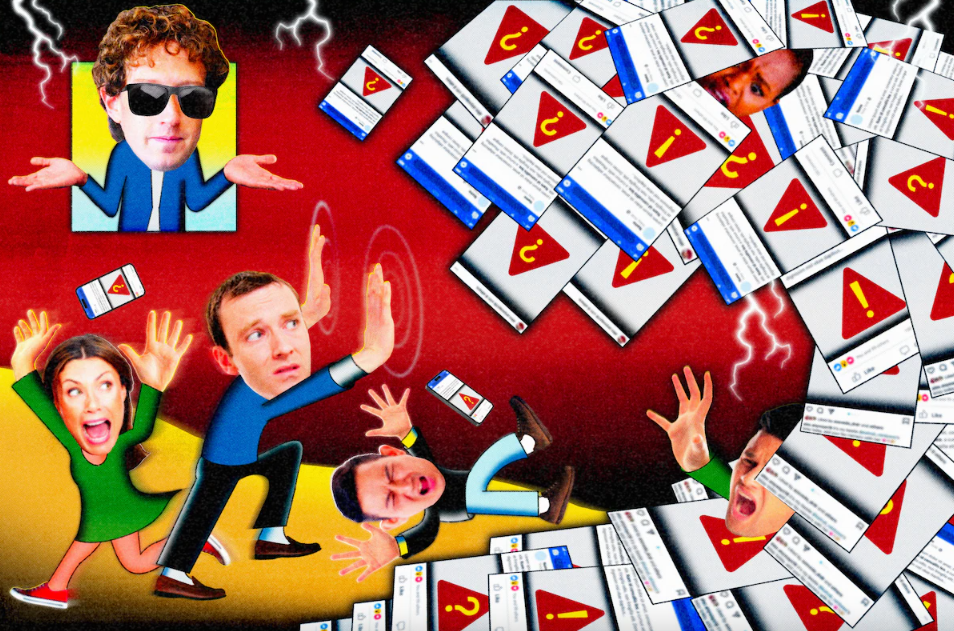Zuckerberg fired the fact-checkers. We tested their replacement.
Meta CEO Mark Zuckerberg (top left) fired professional fact-checkers, leaving users to fight falsehoods with community notes. As the main line of defense against hoaxes and deliberate liars exploiting our attention, community notes appear — so far — nowhere near up to the task. Illustration by Rui Pu / The Washington Post
The Washington Post
When a hoax about Donald Trump went viral at the funeral of Pope Francis, I went on social media to try to set the record straight. I’m a volunteer for community notes, a program Mark Zuckerberg announced in January that replaces fact-checkers with users to counter falsehoods on Facebook, Instagram and Threads.
I drafted a note debunking images claiming to show Trump sleeping during the ceremony. I cited live-stream footage and corroborating time stamps. I linked to research by Snopes.
None of that mattered. My community note never got added to a post because not enough other users voted it was “helpful.”
Over four months, I’ve drafted 65 notes debunking conspiracy theories on topics ranging from airplane crashes to Ben & Jerry’s ice cream. I’ve tried to flag fake artificial intelligence-generated video clips, viral hoax security threats and false reports about an ICE partnership with DoorDash.
Only three of them got published, all related to July’s Texas floods. That’s an overall success rate of less than 5 percent. My proposed notes were on topics other news outlets — including Snopes, NewsGuard and Bloomberg News — had decided were worth publishing their own fact checks about.
ADDITIONAL NEWS FROM THE INTEGRITY PROJECT




